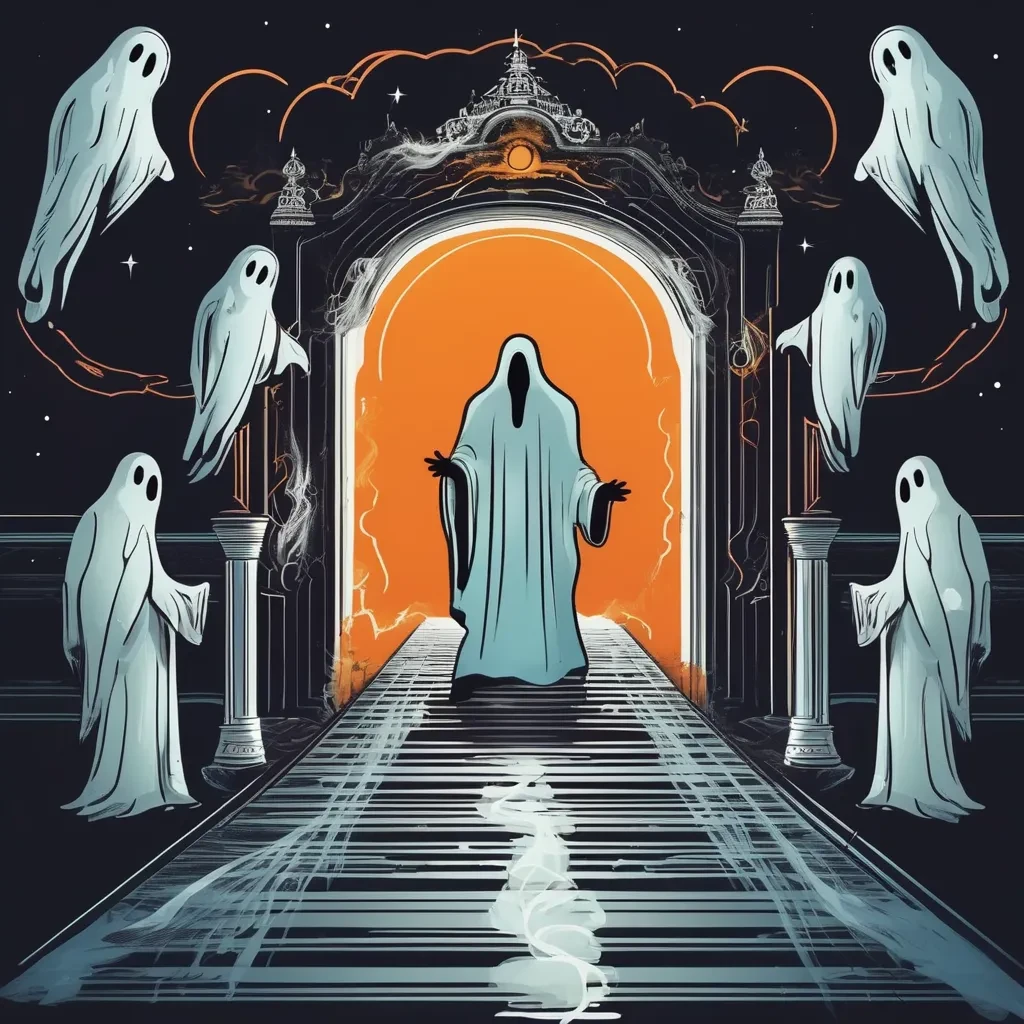Are Ghosts Real? Exploring the Mystery of the Afterlife
Introduction: The Eternal Question
The existence of ghosts has been a topic of fascination for centuries. From chilling tales in folklore to modern-day paranormal investigations, people across the world claim to have experienced encounters with spirits. However, the question remains: Are ghosts real? Despite numerous testimonies and unexplained phenomena, there is no concrete scientific evidence to support their existence. In this article, we will explore the different theories surrounding ghosts and the afterlife, from energy manifestations to psychological explanations.
The First Law of Thermodynamics: Energy and the Afterlife
One of the most compelling scientific theories surrounding ghosts comes from the First Law of Thermodynamics, which states that energy cannot be created or destroyed, only transferred or changed from one form to another. Some believe that this principle implies that the energy from a person's body may survive after death and manifest as a ghost. This energy could take the form of residual heat, electromagnetic fields, or some other undiscovered phenomenon.
However, this theory faces several challenges. While it suggests that energy could persist after death, it doesn’t explain why or how this energy would appear as a visible ghostly figure. Additionally, modern science has not found any detectable energy that corresponds to ghostly phenomena. For example, ghost hunters often use electromagnetic field (EMF) detectors in their investigations, but these devices have never been proven to detect spirits. The idea of energy surviving death remains a topic of debate, with critics arguing that energy is simply released back into the environment, not captured in a form that could be detected by humans.
Psychological Explanations: The Role of the Mind
While some people firmly believe in the existence of ghosts, others argue that ghostly encounters may be the result of psychological factors. One common explanation is sleep paralysis, a condition in which individuals wake up but are temporarily unable to move or speak. During sleep paralysis, people often report seeing strange or frightening images, including apparitions of ghosts. This phenomenon may explain some reported ghost sightings, particularly those that occur during the night.
Additionally, the human brain is highly suggestible, especially in situations of fear or stress. In the dark, unfamiliar places, or in moments of grief, our minds may create vivid hallucinations of deceased loved ones or shadowy figures. This is particularly true in environments that are thought to be haunted, where people may subconsciously look for signs of spirits. Cognitive biases and the power of suggestion also play a role, as people who believe in ghosts are more likely to interpret ambiguous stimuli as paranormal events.
Scientific Investigations and the Search for Evidence
Over the years, numerous scientists and researchers have attempted to find evidence of ghosts using technology and controlled experiments. Ghost hunters often use devices like infrared cameras, EMF detectors, and digital voice recorders in their investigations. However, despite decades of attempts, there has been no verifiable evidence proving the existence of ghosts. The images, sounds, and videos captured during these investigations are often inconclusive or easily explained by natural causes, such as camera malfunctions or environmental factors like temperature changes.
One of the biggest challenges in studying ghosts is the lack of a consistent and universally accepted definition of what a ghost is. Some believe that ghosts are the spirits of the deceased, while others think they could be manifestations of psychic energy or otherworldly entities. Without a clear understanding of what ghosts are, it’s difficult to conduct scientific studies that could definitively prove or disprove their existence.
The Future of Ghost Research
While the debate over the existence of ghosts continues, it’s clear that our understanding of the afterlife and paranormal phenomena is far from complete. New technologies, such as advanced sensors and AI algorithms, may offer new ways to investigate unexplained occurrences. As science continues to progress, researchers may one day develop more effective methods for detecting or explaining ghostly phenomena.
In the meantime, the mystery of ghosts remains, with believers and skeptics alike continuing to search for answers. Whether ghosts are real or simply products of our minds, they continue to captivate and intrigue people around the world, keeping the debate alive for generations to come.










No hay comentarios:
Publicar un comentario